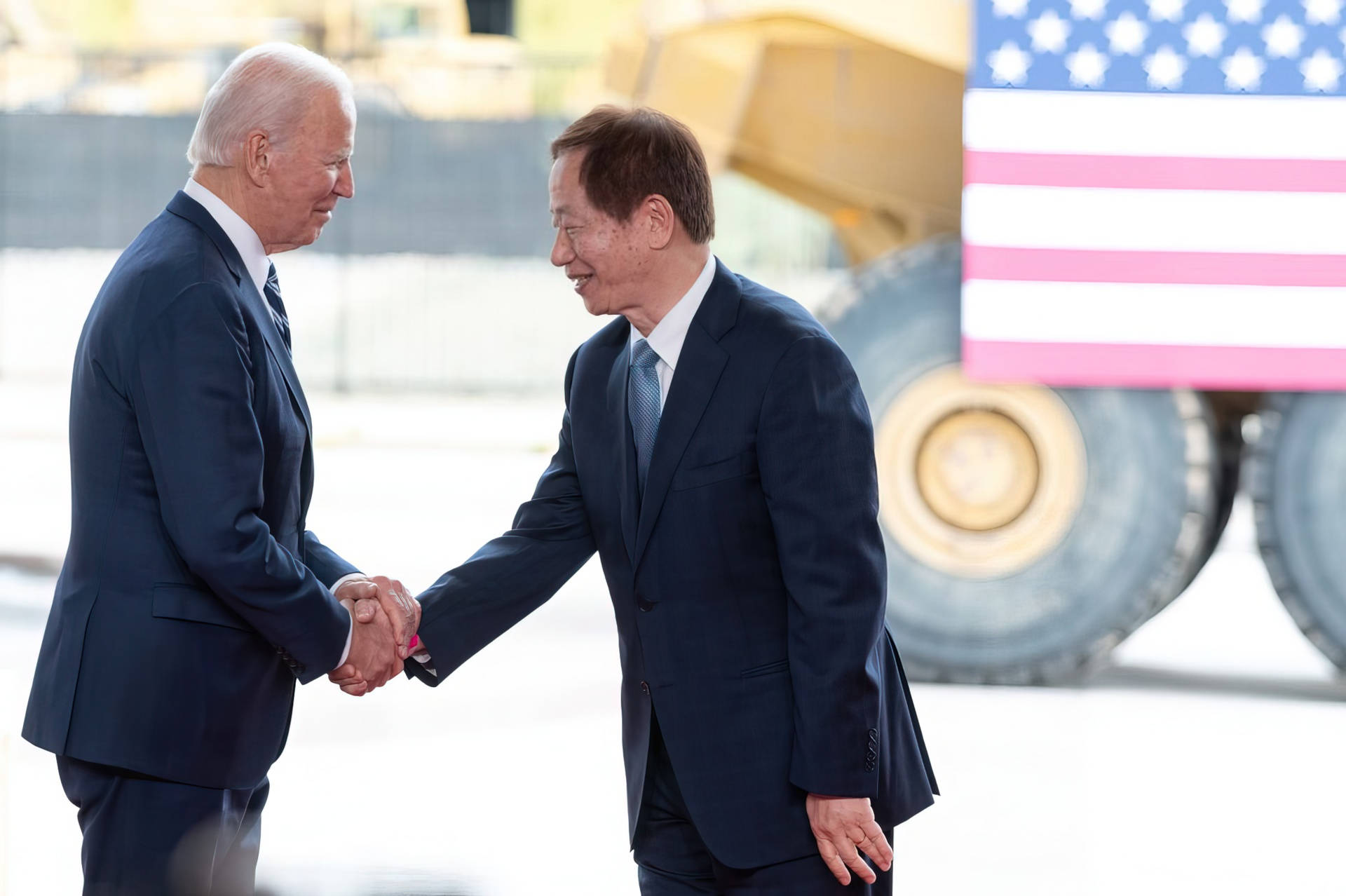TSMC Arizona fab, which will begin producing chips in 2024 and add a new site in 2026, will also serve AMD and Nvidia as customers.
Following the establishment of a sophisticated new chip facility in Phoenix, Arizona, Apple intends to begin using processors built in the United States.
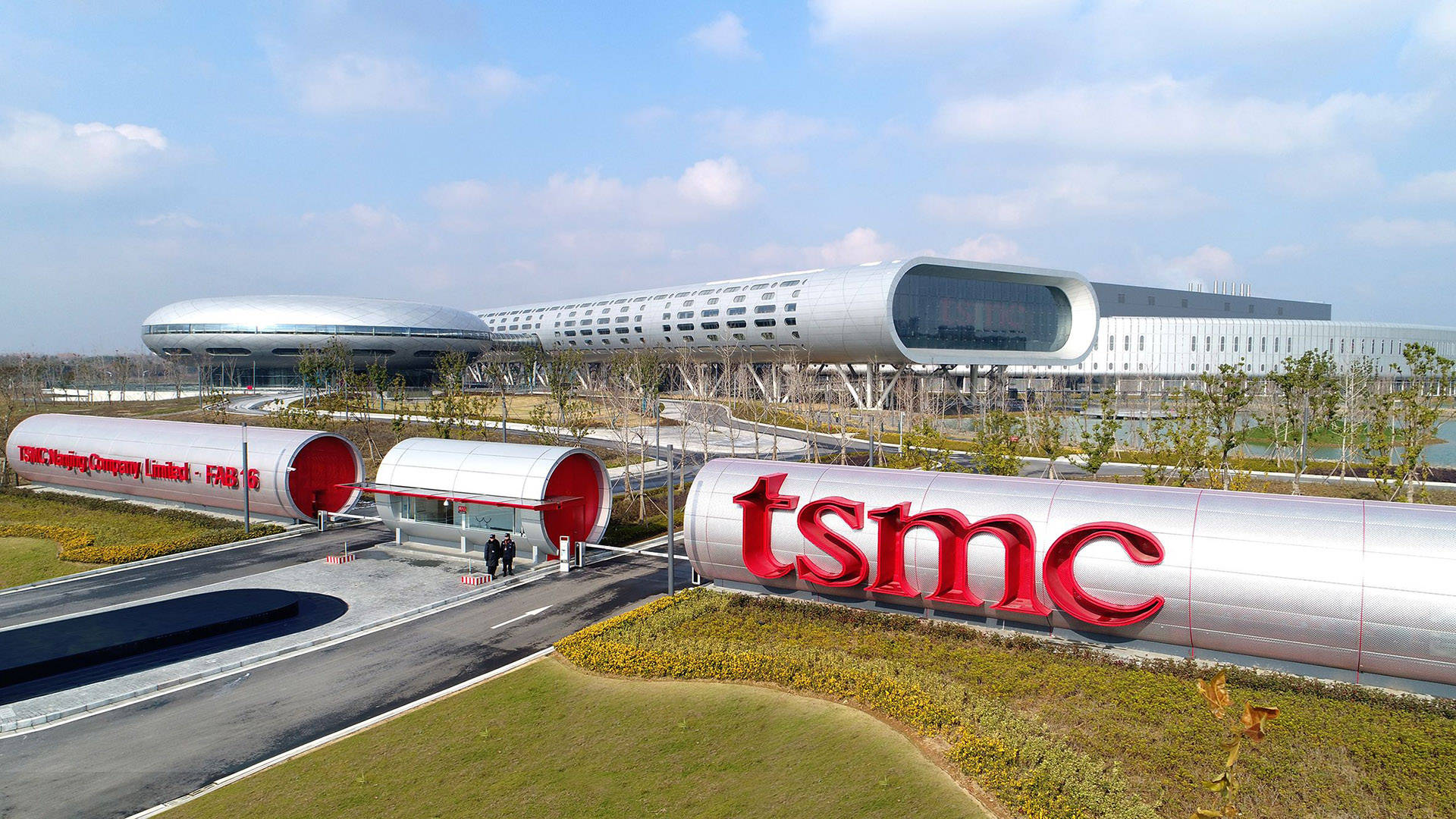
AMD and NVIDIA will use the TSMC Arizona fab too
The new facility implies a more secure supply of chips and shorter manufacturing timetables for the plant’s clients, who include AMD and NVIDIA. TSMC also announced today that it will begin construction on a second factory in Phoenix next year, increasing the site’s annual output.
“As Tim Cook can attest, these chips will power iPhones and MacBooks,” President Joe Biden said at an event outside the Arizona factory on Tuesday. “Apple had to import all of the advanced chips from abroad.” Now we’re going to handle more of their supply chain here in the United States.”
Biden and Apple CEO Tim Cook attended TSMC’s “tool-in” event in north Phoenix, which marked the introduction of manufacturing equipment to the first factory.
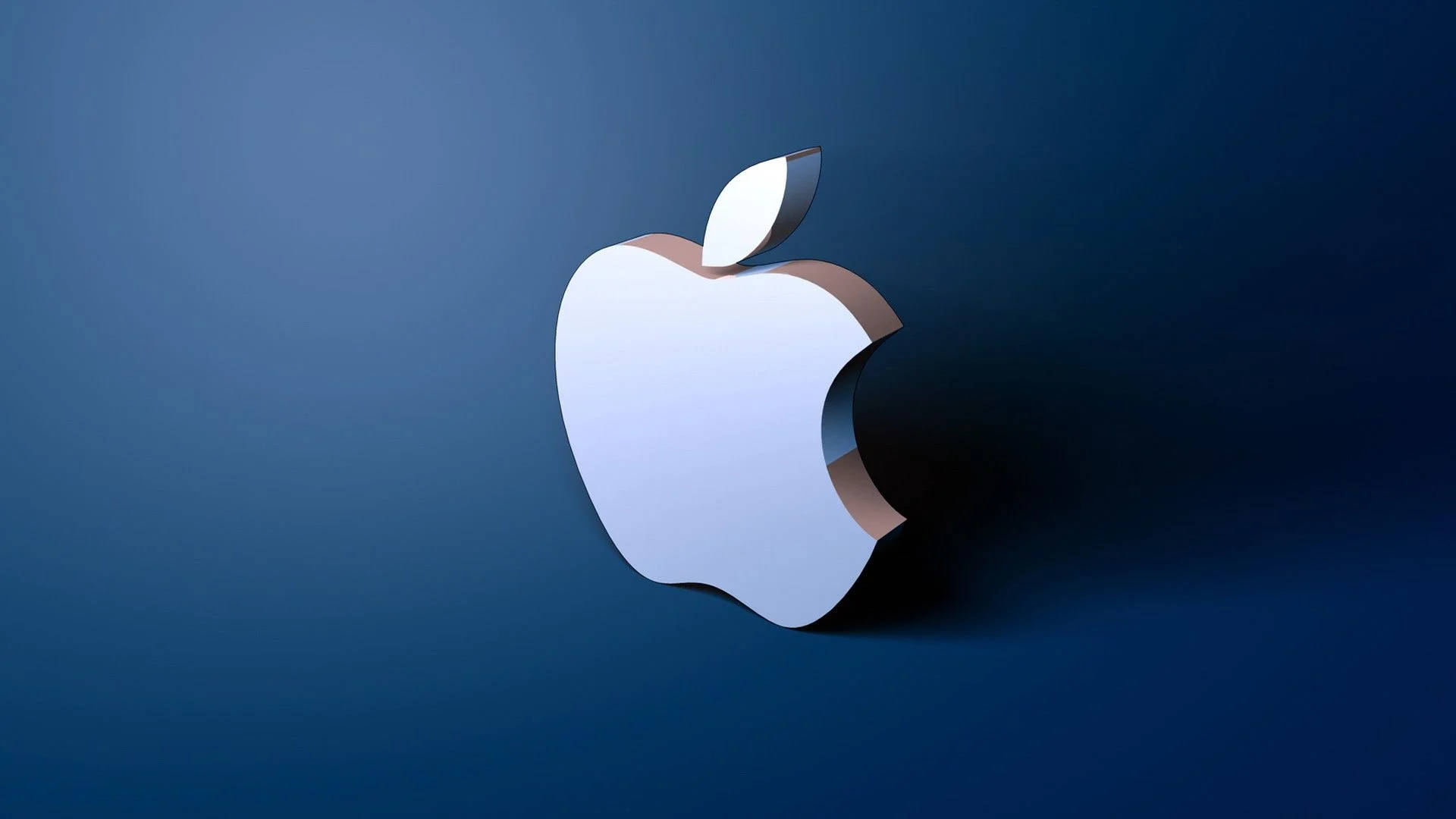
The facility is a massive, modern structure surrounded by recently paved roads and surviving desert plants. TSMC invited customers, employees, local leaders, and journalists to see its new factory, or at least the outside of it, at its first public event.
TSMC is a dedicated foundry, which means it manufactures chips designed by other companies. Among its largest customers are Apple, AMD, and NVIDIA, and even Intel relies on TSMC to produce the most advanced processors.
The first Phoenix fab will produce 4nm CPUs (up from the previously announced 5nm), with manufacturing set to begin in 2024. The second fab will open in 2026 and will make 3nm chips, which are the smallest and most complicated processors currently in production.

Overall, TSMC announced a $40 billion investment in its TSMC Arizona capacity, making it one of the biggest foreign direct investments ever made in US manufacturing. The two fabs will generate more than 600,000 wafers per year by 2026, enough to supply the entire US demand for sophisticated chips, according to White House officials.
Apple, AMD, and NVIDIA executives announced on Tuesday that they will be among the first customers to purchase chips from the new TSMC Arizona fabs.
“TSMC has become a global platform on which the world’s tech industry is built,” NVIDIA CEO Jensen Huang said. “Bringing TSMC investment to the United States is a masterstroke and a game changing development for the industry.”
The afternoon featured a bevy of speakers emphasizing the significance of TSMC’s visit to Arizona. A throng of roughly 200 people was sprinkled with red-shirted TSMC personnel, and the remarks were so numerous that there was even an interval with a champagne toast to break things up.
The event was also attended by Commerce Secretary Gina Raimondo, Arizona Senator Mark Kelly, and other members of Arizona’s Congressional delegation. Business heavyweights like as Micron CEO Sanjay Mehrotra, Microchip CEO Ganesh Moorthy, and TSMC founder Morris Chang were there.
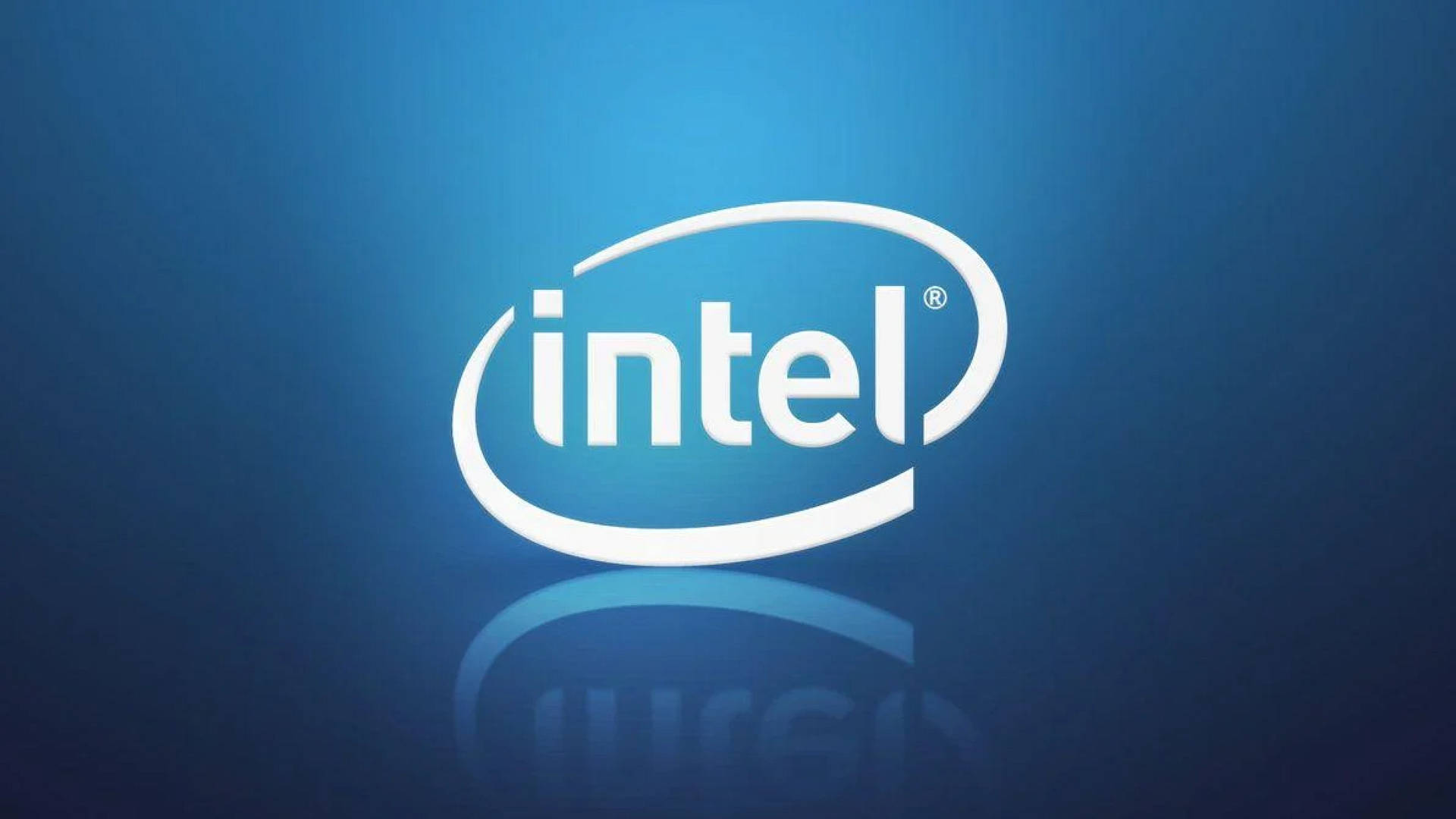
Customers of TSMC have not said how many chips they want to acquire from these fabs, but the TSMC Arizona devices will be more sophisticated than what they now use at 3nm and 4nm. Apple’s A16 CPUs for the iPhone 14 Pro and Pro Max, as well as its M2 chips for MacBooks, are both manufactured using 5nm manufacturing technology.
TSMC will, however, be creating more sophisticated chips at overseas sites by the time these TSMC Arizona fabs are both operational. According to Nikkei Asia, the business intends to create 2nm chips by 2025.
“The progress we’ve made with Apple Silicon has transformed our devices,” Cook said on Tuesday. “When you stop and think about it, it’s extraordinary what chip technology can achieve. And now, thanks to the hard work of so many people, these chips can be proudly stamped ‘Made in America.’”
The United States is in the midst of a semiconductor manufacturing resurgence, fueled in part by the covid pandemic’s clogged supply chains. Asia produces the great majority of the world’s semiconductors, with the United States manufacturing around 10% of the world’s semiconductors.
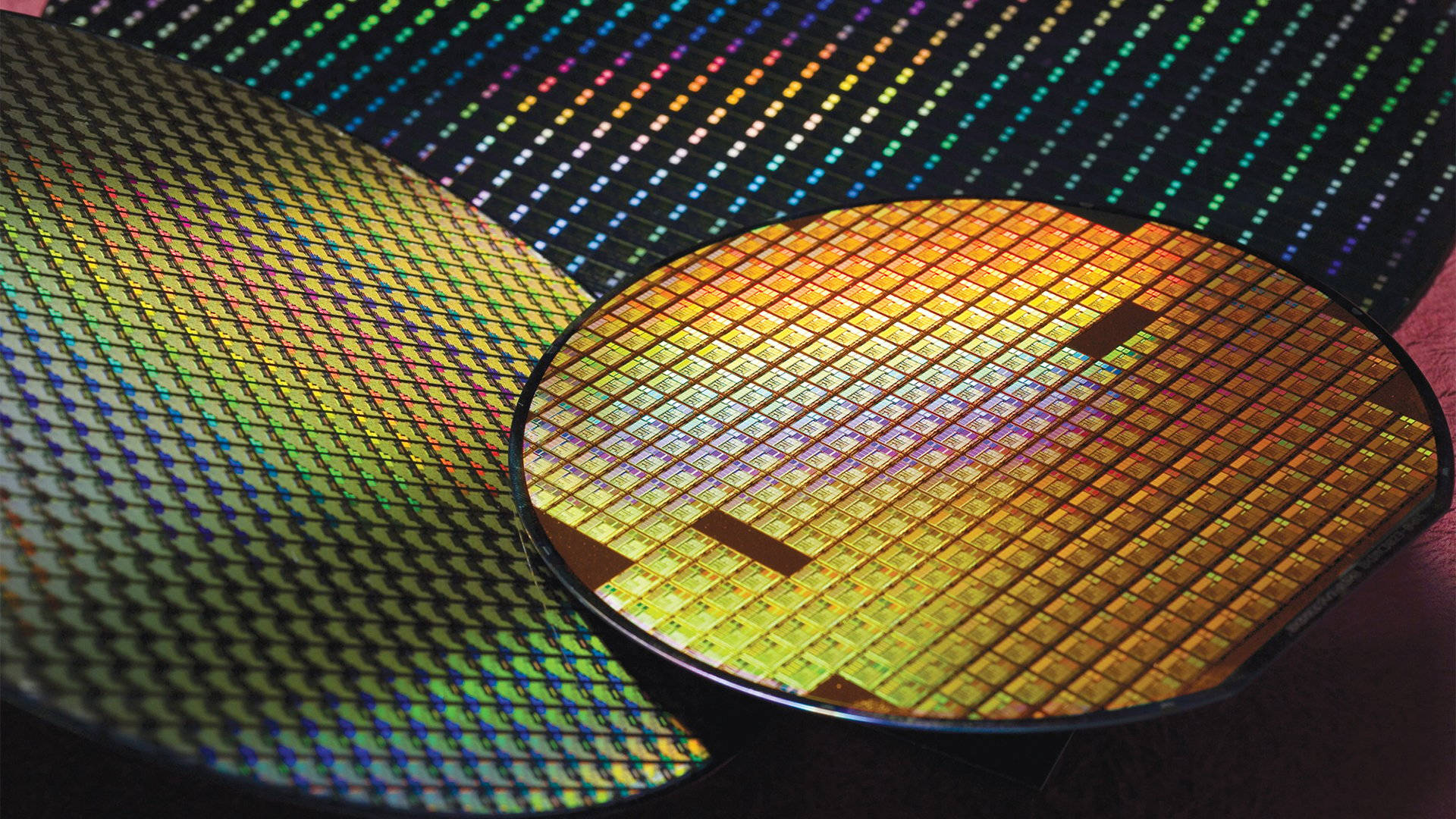
Apple has spent the last several years striving to broaden its supply chain beyond China in order to avoid future disruptions. It is currently manufacturing certain iPhones in India and plans to extend MacBook and Apple Watch manufacture to Vietnam. The TSMC Arizona factories will not allow for full-scale iPhone production in the United States, but they will supply critical components used in Apple products.
Apple lost $6 billion in sales due to the semiconductor scarcity, and the firm recently announced intentions to acquire more chips from European and US fabs to address supply difficulties.
Recently, American politicians have advocated for reshoring manufacturing in order to reduce dependency on other countries.
This fervor for reshoring resulted in the CHIPS and Science Act, a legislative package that includes $52 billion in funding for local chip fabrication. Although Biden signed the measure into law in August, the funds have yet to be distributed.
Starting next year, the Commerce Department will distribute the funds through its “Chips for America” initiative. Foreign firms will be eligible for these incentives as long as they increase US manufacturing capacity, and TSMC has already said publicly that it would seek for CHIPS money.
Even without CHIPS financing, numerous large semiconductor initiatives are in the works.
Intel, America’s top chipmaker, maintains its largest production facility in Chandler, a Phoenix suburb. The company is working on a $20 billion expansion at its Chandler campus, which will be completed in 2024.
Intel also intends to invest $20 billion in Ohio to build “the largest silicon manufacturing location on the planet.” Intel has yet to reveal what it will manufacture in Ohio, but production is expected to begin in 2025.
Micron, which manufactures memory and storage chips, said in October that it will invest up to $100 billion in the construction of a “megafab” in New York. In Texas, Samsung is investing $17 billion to develop its Austin plants in order to compete with TSMC.
During his remarks, Chang, TSMC’s founder, stated that he had long dreamed of building in America and that TSMC’s current chairman, Mark Liu, is finally bringing that dream to fruition.
“My dream of 25 years ago will now be fulfilled by Mark.” he said.

